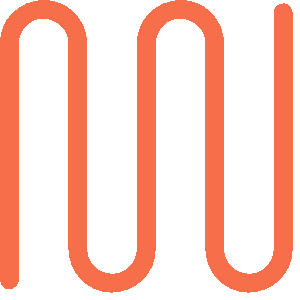The Dos and Don’ts of Question Headlines
There’s a right and wrong way to do everything — question headlines included.
Asking questions can inspire curiosity and critical thinking, in turn compelling your target audience to click through or continue reading an article. But depending on your overarching goals and subject matter, question-based headlines are not always the best way to frame your content.
Here are some basic rules you should keep in mind when crafting these headlines. First, the Don’ts:
Don’t: Ask Obvious Questions
If your headline addresses a question that most people already know the answer to, or can find elsewhere with a simple Google search, they probably won’t be inclined to click.
- Is exercising good for your health?
- How old is Barack Obama?
- Which month is the rainiest of the year?
There is no incentive to click on any of these headlines, because the answers are either common knowledge, or can be easily answered without reading a lengthy article. In short: never use a question headline that can be answered with a single word or phrase.
Don’t: Ask Questions That Can’t Pass Betteridge’s Law
Betteridge’s law states that any headline ending in a question mark can be answered with the word no.
Avoid using a question unless it defies Betteridge’s law. Why? If a reader’s automatic response to a headline is “no,” they are unlikely to click through, seeing as they already know the answer.
- Can farming practices in Oklahoma solve climate change?
- Can sensors scientifically prove UFOs exist?
- Does bad grammar stand in the way of true love?
It’s probably safe to assume that Oklahoma farmers haven’t single-handedly solved climate change, that UFOs are still regarded as pure speculation, and that true love isn’t directly correlated with poor sentence structure.
Don’t: Use a Question to Obscure Facts
Misleading or exaggerated headlines conceal the true nature of the content they represent. If you withhold information to get more clicks, you may increase your pageviews, but you’ll do little to earn the trust and admiration of your target audience.
- Is Betty White secretly a Russian spy?
- Will giant ants take over the world?
- Is today the day you become a millionaire?
These examples are outrageous enough to be compelling, but unless your headline is supported by information that is actually useful to readers, clicks won’t get you anywhere.
Don’t: Use Question Headlines as a Fear Tactic
Using headlines to scare online users into clicking through is never the way to go. While fear is a strong emotion that may very well generate traffic, it likely won’t contribute to your overarching business goals.
- Could you be dying?
- Are your children in danger?
- Is your daily fatigue a sign of cancer?
A compelling title is great, but must be backed with content that delivers what is promised. Reframe your content with a headline that accurately and positively represents the values and purpose of your brand.
Now for the Dos:
Do: Use “Why” Questions
“Why” questions can be powerful, as they challenge readers to think critically about a particular topic before reading further.
Trump’s History of Corruption is Mind-Boggling. So Why is Clinton Supposedly the Corrupt One?
The internet is flooded with clickbait headlines and downright false content. Open-ended questions help you stand out from the crowd, urging your audience to come to their own conclusions.
Do: Use a Question to Set Up the Answer Within the Headline
Asking a question and providing the answer within the same headline can be useful when you’re explaining something that may surprise readers.
Want to Raise Successful Daughters? Science Says Nag the Heck Out of Them
Nagging isn’t often associated with successful parenting, so this headline compels readers to learn the facts behind the theory. The trick to this strategy? Keep it short and snappy.
Do: Ask Questions That Have No Answer
Microsoft Wants Autistic Coders. Can It Find Them And Keep Them?
The answer to this particular headline can’t be confirmed until Microsoft actually hires autistic coders. So the purpose of the question is more about getting readers thinking or soliciting feedback, rather than providing a concrete answer to the headline query.
Do: Ask Questions That Inspire Curiosity
According to Bob Bly, the best question headlines ask “questions that readers can empathize with or would like to see answered.” Take this (totally real!) headline, originally penned by Bill Jayme for Psychology Today:
Do You Close the Bathroom Door Even When You’re the Only One Home?
When a question addresses a relatable habit or personality trait, it compels readers to learn more about the psychology behind their own actions.
Do: Dare to be Provocative
While you shouldn’t use deliberately exaggerated language, there’s no reason you can’t spice things up a bit. Provocative language and powerful words go a long way when it comes to crafting compelling headlines.
What’s Scarier Than the Sex Talk? Talking About Food & Weight!
This Modern Mom article about raising healthy kids is in no way misleading, but still manages to grab readers’ attention by incorporating buzzwords into the headline.
Sometimes, creating the perfect headline comes down to trial and error. Experiment with question-based headlines that speak to your target audience and accurately reflect your content and brand – and see what yields measurable results!
Related Insights
We’re looking forward to working with you, too.
Start conquering the digital terrain today.








